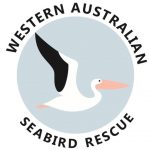FOUND AN INJURED BIRD?
IMPORTANT DISCLAIMER
The information outlined on this website should only be used as a guide and where possible you should contact a wildlife rescue service for further information or help. WASR assumes no responsibility for injuries as a result of attempts made to rescue injured birds. Assess the situation for your own safety. Rescuing wildlife is done at your own risk.
Seabirds have sharp beaks and many species will strike at your eyes. Always wear eye protection (safety glasses) and keep birds well away from your face.
Wildlife carry diseases such as Salmonella and E. coli that can be transmitted to humans, use good hygiene and if you have handled a wild bird wash your hands well and change your clothing.
Never put sick birds (including ducklings) in water while waiting to take them to care or they may develop hypothermia. Don’t attempt to feed or force water into a bird.
Anything bigger than a seagull should be handled with two people working together.
Throw a towel over the seabird. With one hand carefully identify the head and beak through the towel and use one hand to keep this under control. Use the other hand to gently fold the towel around the wings and body and pick it up, keeping it low at waist height.
Place it in an appropriate carrier and contact us for further advice or if removing fish hooks follow the advice on our seabird smart fishing page.
A cardboard box lined with newspaper or an old towel with some holes for ventilation can work well.
Keep the bird in a quiet, dark, well-ventilated area away from pets and children. A comfortable temperature for most seabirds is around 25 degrees C.
CALL US
For Seabird and Waterbird Rescue, call: (08) 6102 8464.
We are available 8am – 6pm, 7 days a week.
Outside of these hours and for all other wildlife emergencies, please call the Wildcare Helpline on (08) 9474 9055.
Or call Wildlife Rescue Australia on 1300 596 457.
